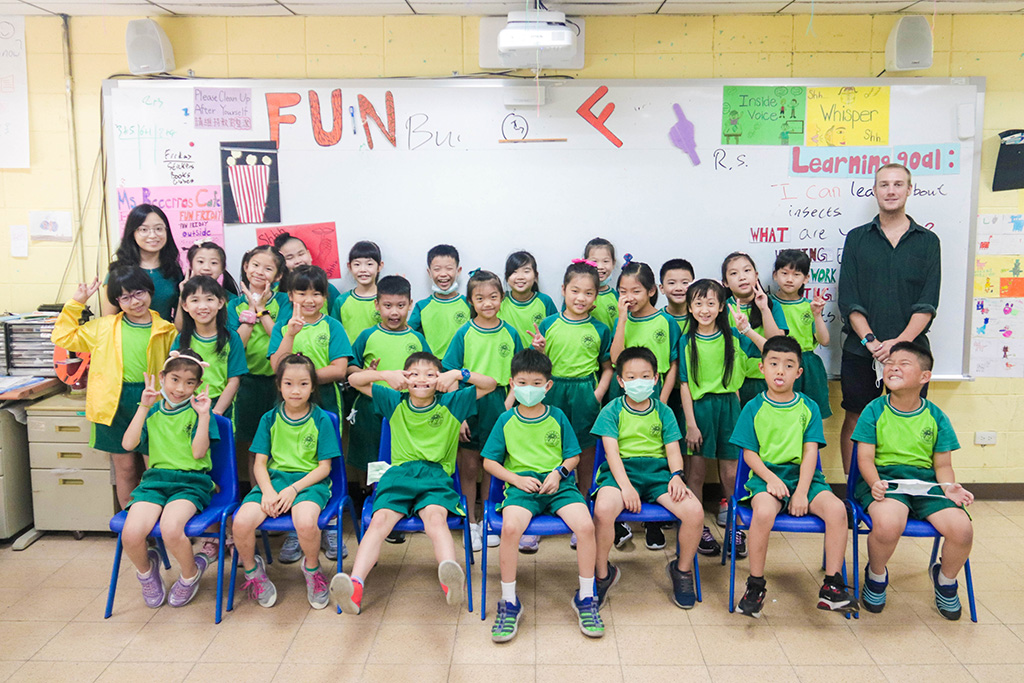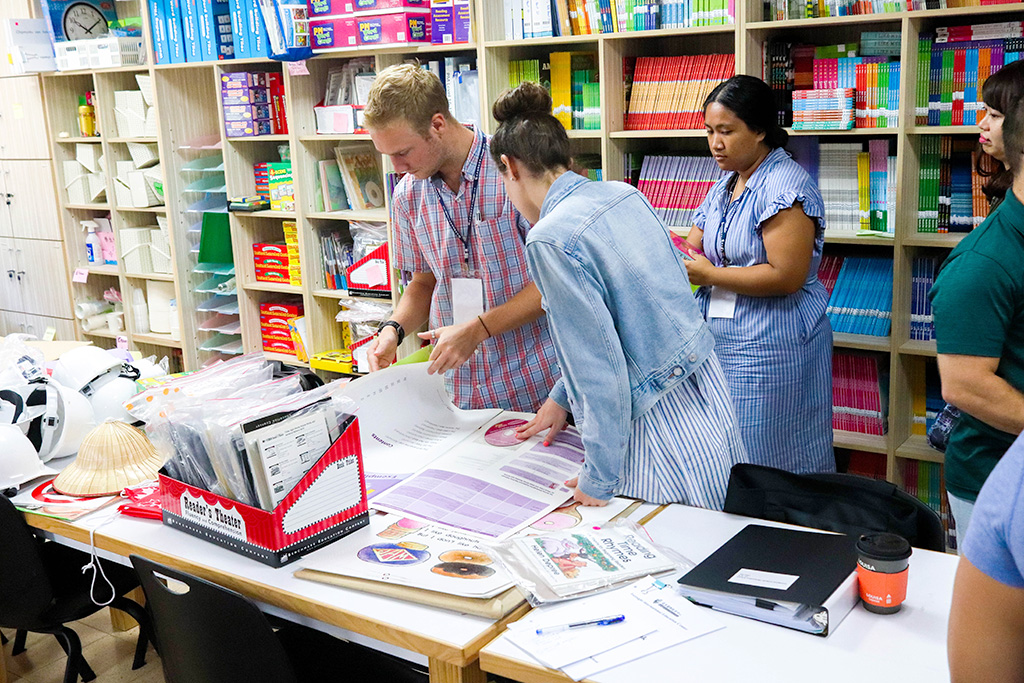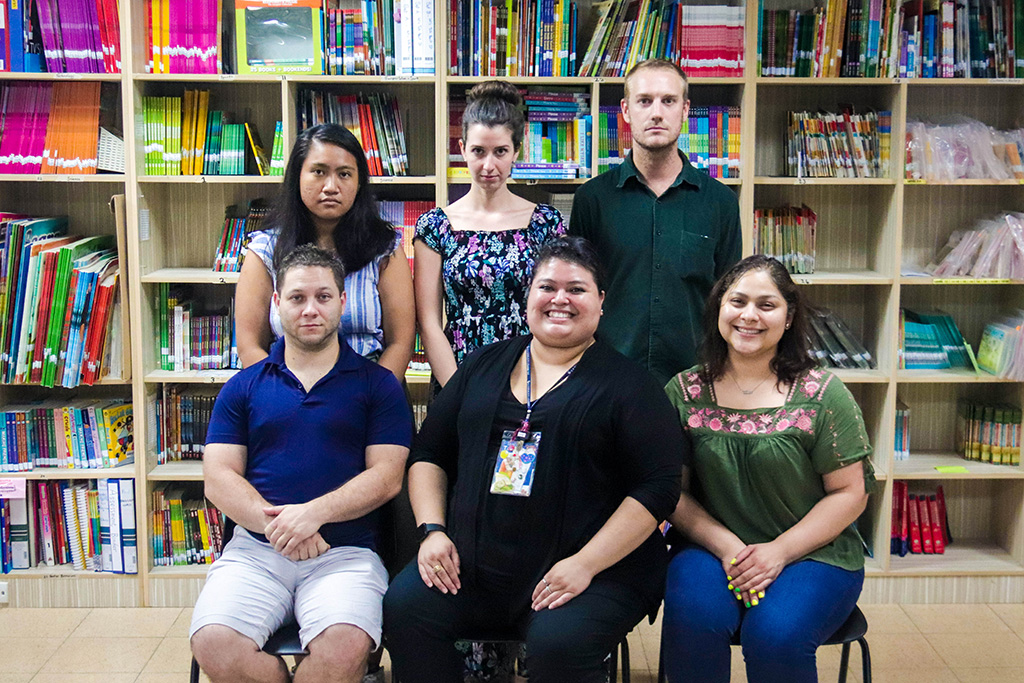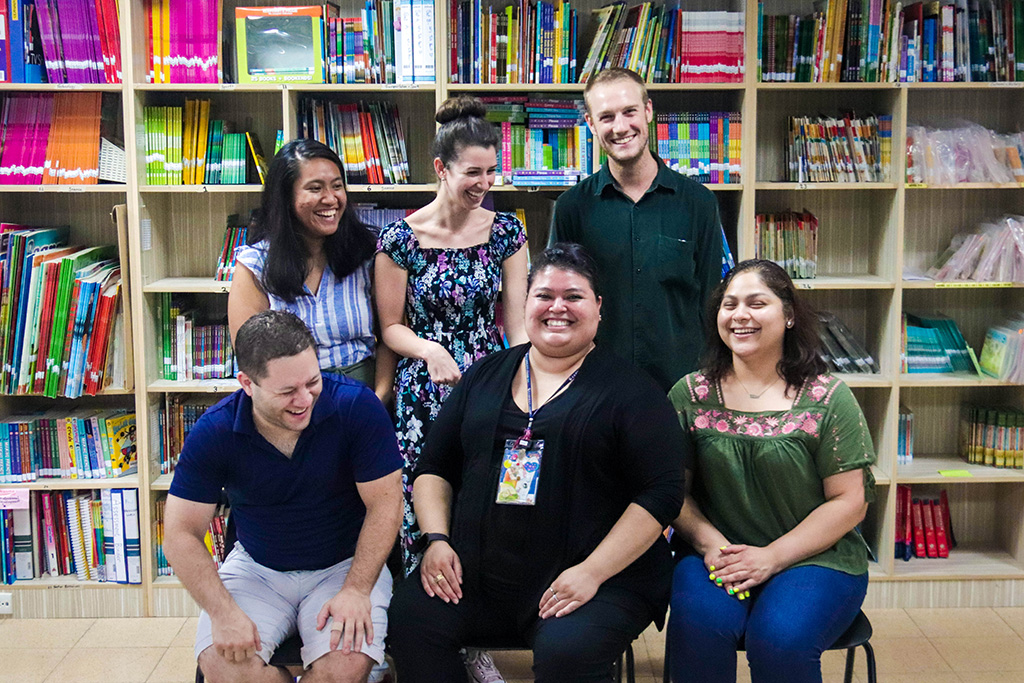
Luke, an elementary and support teacher with Foresight, reflects on valuable lessons learned inside and outside of the classroom while teaching abroad in Taiwan.
This week has marked five years since I left England for foreign shores. It was a large leap of faith but one that, five years later, has rewarded me with a life I am truly grateful for and connections, experiences, and anecdotes that will last me a lifetime. Upon graduating with a Masters degree, I followed the flow of graduates from leafy university town to the overwhelming metropolis of London. I had landed my “dream job,” as a professional football scout and was moving in with friends. Over the next six months, my belief in humanity was slowly eroded and sucked from within me, and the endless cycle of commuting, working, and being poor led me to move to China. Over the next years I lived a transient life, moving around every 6-9 months and living an incredibly fast-paced life. It was a lot of fun, but I struggled to really get my feet under the table in any one country as I always felt the grass would be greener.
That is, until I came to Taiwan. I was initially employed as a grade 2/support teacher at Guangren Elementary School in Wanhua District, Taipei. Starting a new job can be daunting, starting a new job with mainly North Americans as a Brit was more jarring. Being British, we don’t often talk about our feelings, give positive feedback to people, or smile; on the other hand, the Canadians I was working with were endlessly positive. On my first team meeting at school, there was a section of the meeting called “Shout Out of the Week,” and we must have spent about ten minutes talking about how happy we were to be working with each other. This was a real step away from the simple appreciative head nod that plagues England, but after a few months, I became more open to receiving compliments (as opposed to an aloof shrug) and even joined in, praising my grade partners who were going above and beyond to support each other.
 Grade 2 class
Grade 2 class
As a football coach and player, I have always been a huge advocate of teamwork. One of my many monikers is that a good team should be stronger than the sum of its parts, and over my past 18 months at Guangren, I can safely say we have achieved that status. Forming a team isn’t as easy as just snapping your fingers and becoming the A-team. The initial months as we found our workflow was a little here and there, but after a while, we fell into a really good work system where everyone was playing to their strengths and producing materials for the team.


Stern teacher faces
One of the things I enjoyed the most was planning together. I was told in a previous role that planning is one of those things that takes as much time as you have, but having five brains is a lot better than having one! Personally, I am not a creative person or teacher, I know it is a huge weakness of mine, and having to teach art was always something I dreaded. Luckily one of the other teachers in my team couldn’t get enough of teaching it and produced materials that could even guide the least creative soul through a lesson. In turn, I would make materials used to teach basic football in our school, and another teacher would make basic gymnastic materials.

What we are actually like!
Trying my best to inspire art in the classroom, still, this student has bags more artistic talent than I do!
The other half of my role was one of a support teacher. It was the first time our school had this position and it took a while for the role to be fully defined and what we collectively wanted it to look like. The idea was, quite simply, to support the teachers. It was always different depending on what the teacher and students needed - it could be taking the whole class as the teacher works in small groups, or taking high needs or students that need extension whilst the teacher taught the rest of the class.
Coaxing language out of reluctant students (pre-covid times)
I wasn’t the easiest kid at school, finding it hard to motivate myself and often not seeing the point in teacher-mandated work. My role as a support teacher was working with these kids, and having had my experience, I felt in a good position to try my best to coax language out of them. I’ve always found with these kids (and with myself) you need to gamify everything. It's all well and good asking a student to read a page, but they need a reason to read; I often found that competition could provide this reason.
Getting these kids excited about learning was just as rewarding as working with the higher level kids. These kids were more motivated than the previous group and stretching them cognitively and socially was often the order of the day; having them work in pairs or small groups with other high-level kids brought out a higher level of English. There’s a saying in football, and it’s that playing with better players makes you a better player, you raise your game if you are playing with better players, and this is how these small sessions worked. We would deduce the meaning of unfamiliar words from context and go on tangential conversations where learning was student-led and followed the natural flow of the conversation. My role here was to stay as adaptable as possible, wear different hats for different students to bring them out of their shells.
In teaching interviews, a classic cliche is when a teacher will be asked the question, “What have you learnt from teaching,” and the teacher will reply with something like, “Well, sometimes I feel like I’m being taught by the kids, I’ve learnt so much from my students.” I’ve certainly used this line of answering before, but having reflected on what I have discovered about myself, my interactions with the students have developed a lot of my soft skills, in particular, how compassionate I can be. I haven’t learnt these skills from the students; I have developed them from my interactions with the students.
I have students here whose English is of a really good level, and they give 100% in each class and in every activity we do, but these students struggle with certain aspects of school life. Take one student. His oral language is impeccable and he is an excellent reader, his writing is full of wonderful ideas and he experiments with language in all of these spheres - sounds like an ideal student. Unfortunately, his handwriting is basically chicken scratch. On my bad days (we all have them), I ask him to try harder and write neater, but often I stop myself and remember back to my school days. I was often told to try harder with my handwriting, but when I tried my best it still wasn’t good enough (disclaimer, it still isn’t) and I found it demoralising to always be told my handwriting wasn’t up to scratch - surely give me feedback on my content! So now, I practise compassion and bring myself to understand he is trying his best and I can support his content and understanding of English, not his handwriting.
Working at Guangren Elementary has been an incredibly fun time. To use that age-old cliche, I’ve learnt a lot from my colleagues, I am more comfortable giving and accepting praise, I love working with the teams I work with, I’ve become more adaptable and compassionate. To have all these bonuses from a job makes it pretty worthwhile for me.
Luke is a primary school and support teacher from England. He has coached football and taught English in China, India, Vietnam, Italy and is now here in Taiwan. He has a passion for guided discovery, Korean BBQ and long-distance running.



